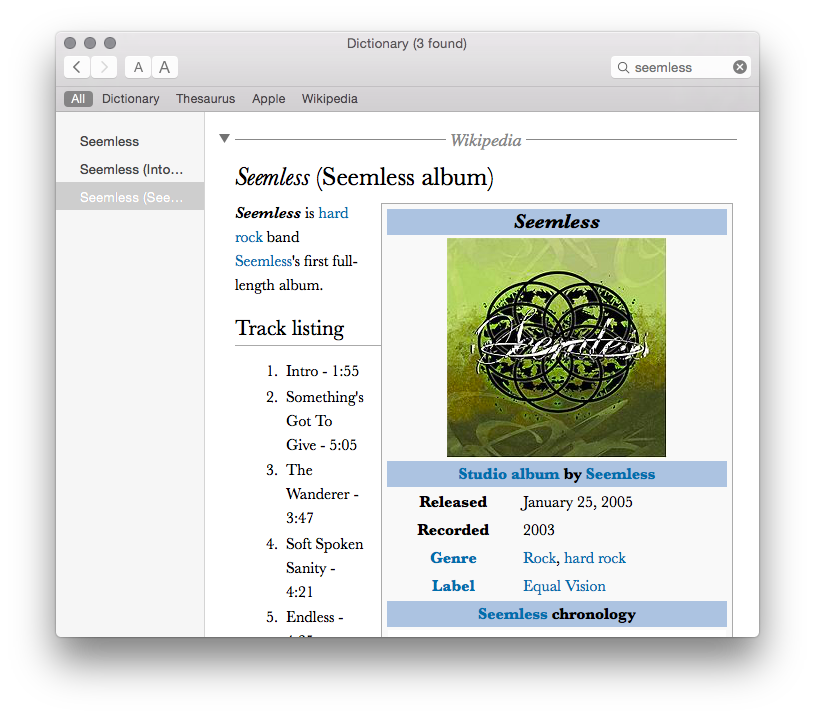Answering a random call for SEO help – actually it turned out to be canonical URL help – I happened to notice that the site in question referred so something as a “seemless way” to do something. My inner autocorrect went, “hmm” and narrowed its (inner) eyes. Yep, should be “seamless” for sure.
Yes, we’ve been down this road together before, dear reader, with peek vs peak (vs pique vs peke) and also breaches vs breeches. But something’s different this time. All of the foregoing are real words, just misplaced or misused. Seem is a word. Unseemly is a [fun to use] word. Maybe seemless is too, even if it doesn’t mean the same as seamless.
None of the usual online dictionaries carries seemless, and neither does my paper American Heritage Second College Edition dictionary. My Third Edition Official Scrabble Player’s Dictionary doesn’t have it, and that has a ton of dubious words. The MacOS dictionary app was entertainingly unhelpful.
Do you suppose the band really meant seamless? Well, it turns out there is – or should I say was – a real meaning of seemless. Wiktionary claims to have dredged it from a now public domain 1913 edition of Webster’s, and defines it thusly:
(obsolete) Unseemly; unfit; indecorous.
(Can we find and add a quotation of Spenser to this entry?)
So after all that, seemless is pretty much good old unseemly. Maybe it’s what the band had in mind, but it’s probably not what the website that started me on this track was thinking. Note that the 1913 Webster already called it obsolete, and implied that Spenser coined it or at least used it in print – and that would date it back at least to around the turn of the 17th Century. Go figure.

